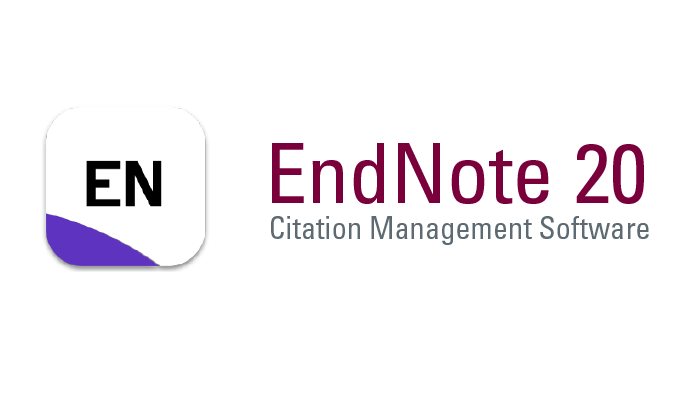KONSEP EDUPREUNEURSHIP DAN IMPLEMENTASINYA BAGI LULUSAN PERGURUAN TINGGI
DOI:
https://doi.org/10.47887/amd.v6i1.199Keywords:
Edupreuneurship Concept, Implementation, Higher EducationAbstract
This study aims to determine the concept of edupreneurship and its implementation for college graduates. The research method is a qualitative research method. While the research approach is library research. Data collection techniques with documentation. Edupreneurship comes from the words education and entrepreneurship which mean education and entrepreneurship, so edupreneurship means entrepreneurship education, namely introducing entrepreneurial concepts to instill an entrepreneurial spirit, including being creative, innovative, daring to take risks and being highly competitive. That way, college graduates are able to compete in the industrial world. Therefore, edupreneurship is important to be taught in educational institutions and colleges in order to increase the competitiveness of college graduates after completing their education. Based on research conducted at Harvard University, two skills that support a person's success are 80% soft skills and 20% hard skills. Through edupreneurship, the skills possessed by students can be improved.
References
Andrew Shandi Utama, dkk (2021). Edupreneurship. Sumatra Barat: Insan Cendikia Mandiri.
Assingkily, M. S., & Rohman, N. (2019). Edupreneurship dalam Pendidikan Dasar Islam. JIP (Jurnal Ilmiah PGMI), 5(2), 111–130. https://doi.org/10.19109/JIP.V5I2.3721 DOI: https://doi.org/10.19109/jip.v5i2.3721
Badrut Tamam, A. M. (2019). Implementasi Edupreneurship Dalam Pembentukan Karakter Sekolah Unggul. 5(1). DOI: https://doi.org/10.36420/ju.v5i1.3521
Bahri. (2018). Kewirausahaan Islam: Penerapan Konsep Berwirausaha dan Bertransaksi Syariah dengan Metode Dimensi Vertikal (Hablumminallah) dan Dimensi Horizontal (Hablumminannas). Islamic Entrepreneurship: Implementation of The Concept of Entrepreneurship And Shari. 1(2), 67–87.
Dhani Kurniawan. (2013) Konsep Dasar Kewirausahaan Dan Proses Kewirausahaan.
Eko Agus Alfianto. (2012). Kewirausahaan: Sebuah Kajian Pengabdian Kepada Masyarakat. 1, 33–42. DOI: https://doi.org/10.35891/heritage.v1i2.837
Endang Mulyatiningsih, Sugiyono, S. P. (2014). Pengembangan Edupreneurship Sekolah Kejujuran. https://books.google.co.id/books?hl=id&lr=&id=5WgtEAAAQBAJ&oi=fnd&pg=PA21&dq=edupr eneurship&ots=2js1mKSvVq&sig=xHlW2WxrSCFg57K52V39oq7FfE0&redir_esc=y#v=onepage &q=edupreneurship&f=false
Hari Lubis. (2014). Perkembangan Konsep Kewirausahaan. 1–32. DOI: https://doi.org/10.7454/ai.v32i3.2122
Harti, A. S. (2020). Modul Ajar Konsep Dasar Dan Prinsip-Prinsip Kewirausahaan.
Kurniawan, D. (2013). Konsep Dasar Kewirausahaan Dan Proses Kewirausahaan. 81–96.
Kurniawati, Indah, Isnanita Noviya Andriyani, A. (2021). Konsep Kewirausahaan Dalam Tafsir Al-Azhar Dan Kewirausahaan dikelompokkan dalam bidang mu ’ amalah yang berkaitan hubungan manusia. 3(1), 61–74. DOI: https://doi.org/10.51468/jpi.v3i1.34
Mukarromah, Safitri, M. (2019). Soft Skill Kewirausahaan Berbasis Syari ’ Ah Pada Siswa Sma Muhammadiyah Tambak Kabupaten Banyumas Soft Skill Of Sharia Based Entrepreneurship In Muhammadiyah Tambak
Ojat Darojat, S. S. (2015). Konsep-konsep Dasar Kewirausahaan/Entrepreneurship. 1–53.
Pelipa, Emila Dewiwati, Marganingsih, Anna. (2019). Pengaruh Edupreneurship dan Praktek Kerja Terhadap Kemampuan Life Skill Mahasiswa. Jurkami : Jurnal Pendidikan Ekonomi. DOI: https://doi.org/10.31932/jpe.v4i1.422
Sumiyati. 2017. Membangun Mental Kewirausahaan Melalui Edupreneurship bagi Pendidik PAUD. Al-Hikmah: Indonesia Journal Of Early Childhood Islamic Education. DOI: https://doi.org/10.35896/ijecie.v1i2.12
Sutrisno, W. (2017). Edupreneurship Sebagai Pemerkaya Kompetensi Untuk Memperkuat Daya Saing Lulusan Perguruan Tinggi Di Indonesia. 23–36.
Sutrisno, W., & Suwiryo Cokro. (2018). Analisis Pengaruh Edurpreneurship dan Mentoring Terhadap Peningkatan Daya Saing Lulusan Perguruan Tinggi. 5(1), 114–124. DOI: https://doi.org/10.30998/rdje.v5i1.3392
Wayan, Suwendra. (2018). Metodologi Penelitian Kualitatif Dalam Ilmu Sosial, Pendidikan, Kebudayaan. Bandung: Nilacakra.
Downloads
Published
How to Cite
Issue
Section
License
Copyright (c) 2025 Azizah Azizah

This work is licensed under a Creative Commons Attribution-ShareAlike 4.0 International License.
Authors retain copyright and grant the journal right of first publication and this work is licensed under a Creative Commons Attribution-ShareAlike 4.0 that allows others to share the work with an acknowledgement of the works authorship and initial publication in this journal.
All articles in this journal may be disseminated by listing valid sources and the title of the article should not be omitted. The content of the article is liable to the author.
Authors are able to enter into separate, additional contractual arrangements for the non-exclusive distribution of the journal's published version of the work (e.g., post it to an institutional repository or publish it in a book), with an acknowledgment of its initial publication in this journal.
Authors are permitted and encouraged to post their work online (e.g., in institutional repositories or on their website) prior to and during the submission process, as it can lead to productive exchanges, as well as earlier and greater citation of published work.
In the dissemination of articles by the author must declare the Al-Madaris Jurnal Pendidikan dan Studi Keislaman as the first party to publish the article.














